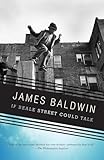This year was a year of catch-up reading: I found myself busy with books that I really should have read years ago. But without a doubt, when it comes to adventures in gorgeous and transformative literature, better (much better) late than never.
Top of my list is Fools by Joan Silber. Silber’s first novel, Household Words, won the PEN/Hemingway in 1980, but I—many of us younger writers, I think—didn’t come to know her work until Ideas of Heaven, her fifth book and a finalist for the 2004 National Book Award. The “ring of stories” form rocked my world back then, and Silber’s ability to inhabit first-person narrators of such widely diverging identities, time periods, and voices was a revelation. With Fools, that same form, now sometimes referred to as a “story cycle,” is intricately crafted, and the stories are arguably even more satisfyingly, thematically linked (When is it wise—or not—to be a fool for something?).
For me though, what caused a Silber-reading marathon (Household Words, The Size of the World, Improvement, Lucky Us) is the wisdom embedded in each story, each character’s journey: These are stories about—simply put—the deep and wide messiness of a life’s arc. People are complicated, and life happens to us and at us more than we ever hope/imagine when we set out as young people. There are no cheap seats in life, and even so, it’s all meaningful, and it matters, and those are the echoes I most want vibrating in me when I put down a book.
Two short novels that seem to me under-read specifically because they were ahead of their time: Ed Lin’s Waylaid and James Baldwin’s If Beale Street Could Talk. In the department of literature by and about people of color, the challenges and pitfalls are too often framed in terms of the either/or versus both/and conundrum: Is the book primarily “about race/racial identity” or about human beings living whole human lives inside their skin in a specific American setting? Both these novels so clearly do not concern themselves with this artificial question.
Beale Street, published in 1974, is a love story: Tish and Fonny are a young woman and man whose circumstances and racial identities make it extremely difficult for them to live happily ever after, and the journey toward that possibility is entangling and profound, much larger than just the two of them.
Waylaid (2002) takes place in the ’80s and features a 12-year-old Chinese-American, male protagonist who lives in and manages his parents’ seedy motel on the Jersey Shore: His first and ostensible problem is that he desperately needs to get laid, but really he’s figuring out how—as a big-for-his-age, smart, horny kid and the only Asian-American kid around—he’s going to grow into a manhood that is his own and find hope in humanity while surrounded by sad, lonely adults (his immigrant parents included). Both Waylaid and Beale Street render powerfully this truth: For people of color, racism is everyone else’s problem; we are just trying to live the fully human lives we are entitled to. The freedom to write character-driven stories that engage racial experience as essential but not essentializing may seem basic to us now, but as an Asian American writer-friend said to me recently about Waylaid: “No one was writing Asian Americans like that back then.” And the same could be said about Baldwin/Beale Street in the ’70s. (Note: I’m mad excited about Barry Jenkins’ film adaptation, but I also encourage all to read the book first if you can!)


I’ll close with two poetry collections—The Wilderness by Sandra Lim and There Are More Beautiful Things Than Beyoncé by Morgan Parker. I tend to read poetry in a more sensory than cerebral way and am not very good at writing “about” poems or poetry collections. So I’ll just say that both these are provocatively and aptly titled and hope you’ll be thus compelled to immerse mind and senses in the work of these fierce, gifted poets.
More from A Year in Reading 2018
Don’t miss: A Year in Reading 2017, 2016, 2015, 2014, 2013, 2012, 2011, 2010, 2009, 2008, 2007, 2006, 2005
The post A Year in Reading: Sonya Chung appeared first on The Millions.
from The Millions http://bit.ly/2S6OfHY








No comments:
Post a Comment